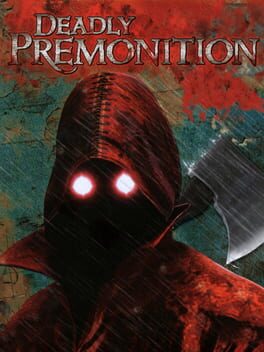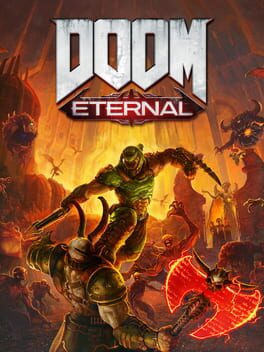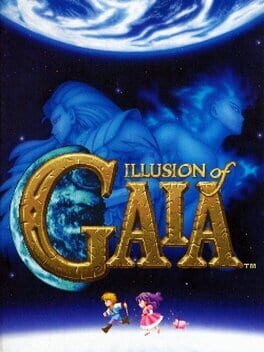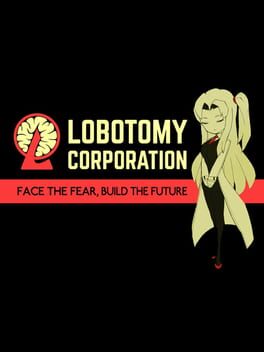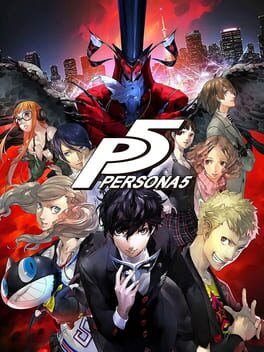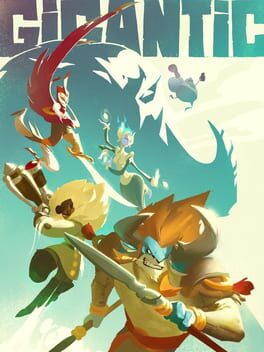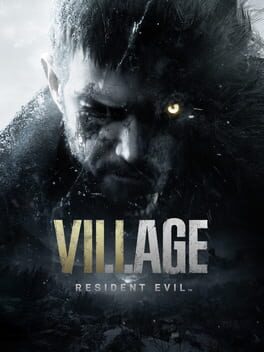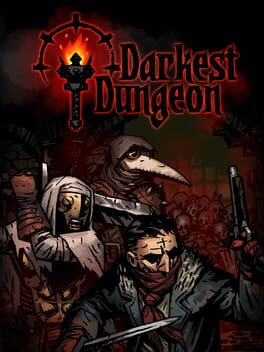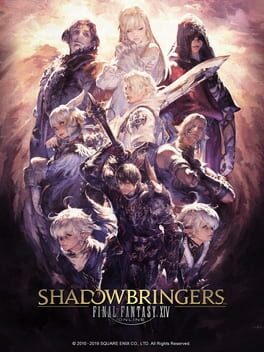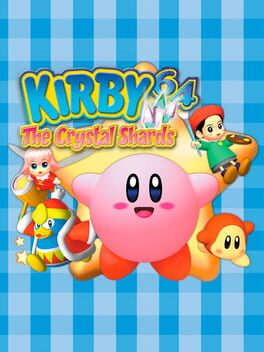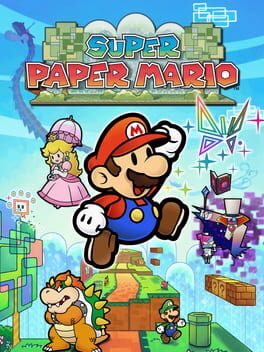TallFilth
Incredible first 2 chapters followed by an equally incredible faceplant. Any semblance of horror or tension or atmosphere is lost and you spend a full chapter walking down linear hallways disarming trip mines (and occasionally backpedaling back through them while you shoot a monster that poses no threat). The latter half of the game feels like a completely different one from the first (many such cases in the RE series but in this case the second game is just... terrible). Still worth playing for the good parts, but a real missed opportunity.
2012
Many smart people think Spec Ops: The Line is a stupid fake-deep game, and viewed without its cultural context that's really all it is. What makes the game reasonably cool is that it was originally essentially a trap- masquerading as a generic modern military shooter, as far as I can tell its intention was to make people that love call of duty actually think a little bit about call of duty. It does a good job of that at times, but if you've already thought about call of duty you're not really the target audience, and anyone that plays the game today probably isn't the target audience.
2010
Some will tell you Deadly Premonition is an offbeat genius masterpiece with a great story, some will tell you it's basically a "so bad it's good" game. It unquestionably contains elements of both, but what makes the game special and an absolute must-play is where those two modes intersect and muddy each other; the patently awful gameplay is funny in a way that's simultaneously clearly unintentional but also clearly intentional. A lot of genuinely smart design elements (see: long, boring car rides) are wrongly dismissed as unnecessary padding because of how clearly unfinished so much of the game is. Best played with friends, but you'll find yourself spending as much time discussing how great the ending (unironically) was as you do laughing at the game's comedy (intentional or otherwise).
2003
Other reviews have already said everything I would want to say but I just want to add that I adore how the final boss of the final ending completely invalidates all of the progress you've made as a player by 1. completely disregarding how you've developed your character (since your level is ignored, weapons aren't used, etc) and 2. completely disregarding how you've improved as a player by randomly making you play a janky rhythm game. Perfect irony for the game to make you perform the most Pointless Video Game Task of all time by collecting every single weapon just to turn around and say "that was a waste of time and you're a moron for doing it. Fuck you." I don't think any of Yoko Taro's games (many of which are trying to do a similar thing to Drakengard) pull it off nearly as well because most of them are at least trying to be fun.
2020
Overdesigned slurry. So much of what you can do in this game is mechanistic and utilitarian to a fault- yes, giving the Doomguy a little dash like he's an Overwatch character does open up new encounter design opportunities because now he has a dodge button, but it's the most boring form of mobility imaginable. I think Doom Eternal's design is best understood by looking at the Flame Belch- one of many activatable-on-a-cooldown abilities that you have at your disposal, the flame belch shoots out a tiny little gout of fire in front of you. When you hit enemies ignited by it you get armor. It looks and feels like shit to use and doesn't really add any depth to the combat (you use it when you need armor, not rocket science) but it's necessary to fill out the game's overall design philosophy of Doomguy being self-sustaining, never needing to stop to get ammo or health or etc. because now there's a button to get that from enemies instead. You have like 5 buttons that are basically the equivalent of the flame belch- they serve a clear mechanical PURPOSE but don't improve gameplay. The result is you can do a bunch of stuff. None of it is fun or satisfying to do and you're going to do it a lot. It doesn't make for a bad game, just a dull one. It would be a lot better off if the level and encounter design wasn't largely generic and dull (the DLC improves the encounter design a lot and finds ways to make the same enemies interesting; if you like this game that's the best part of it). A lot of design choices meant to incentivize weapon switching (which is good) are way too linear and one-dimensional- for example, one enemy has a little weak spot disconnected from its body, so when you see one of those guys you switch to the gun that can scope in a shoot the weak point. I used the same gun to do this every single time. It didn't make combat more dynamic, it felt like playing simon says. Any interesting emergent gameplay or actual improvisation in combat is lost beneath the flood of systems that create obvious correct options in most situations.
It's still pretty fun. It's not terrible or anything, if you like Doom 2016 it's probably at least worth trying.
It's still pretty fun. It's not terrible or anything, if you like Doom 2016 it's probably at least worth trying.
1993
Delightfully strange. If played with the original (very poor) translation it's an incredible journey through a harsh and incomprehensible world peppered with genuinely affecting moments of humanity. I've never played it with a proper translation but I'd be willing to bet it makes the game much worse.
2018
Love to see a game that's not afraid to REALLY make you suffer. A true work of ludonarrative excellence (and also just plain narrative excellence). Don't be afraid of the game's purported impossible difficulty, it's not actually that "hard" per se, it's just (deliberately) arbitrary and unfair (the difference being- it doesn't take a lot of skill or a huge brain to beat the game, it just takes the stubbornness to keep retrying). The ultimate goal of the game is to use the meta-progression tools at your disposal to avoid having to deal with the unfair bits.
2016
Maybe everyone just thinks the first Persona game they play is the best- for me that was Persona 4. I was massively hyped for 5 at its release but was disappointed to find that despite its incredible sense of style and overall fantastic visuals and sound design combined with fun gameplay... it kinda sucks. Entirely because of the story, which makes up a huge chunk of the game. The characters are, by and large, the same goddamn characters from 3 and 4 but with way less depth. Persona 4 used its dungeons to explore the psyches of its main characters, forcing the game to write at least some nuance and depth into all of them (Kanji is a really fantastic standout character). Persona 5 instead uses dungeons to explore the minds of its villains, but it has nothing interesting to say about them. Every villain for most of the game is essentially the same person- just an egomaniac sociopath who does bad things because they have no moral compass and only care about themselves and that's all you really need to know. Shadows, established previously in the series as the worst aspect of oneself that characters are forced to face, are almost always in P5 just the same exact person as their already-villanous owners whose mind-dungeon you're exploring, rendering the whole concept beyond pointless. The result is a story about a bunch of bland characters going on a moral crusade against a bunch of bland villains (then the story suddenly comes to life for one chapter when it switches back to the persona 4 forumla... oh well).
Worse yet, there's absolutely baby-level social commentary (sure, yes, adults screw over young people- but like, why? the game wants to comment on society and Japanese society in particular but it's so broad as to be meaningless). Even worse, the game floats the idea of investigating whether what the main characters are actually doing is moral- after all, if they're stopping evildoers by fundamentally altering their souls such that they repent for their crimes, are the people they are now (after being radically transformed on a base level by magic) even really culpable for the crimes of their past selves? It's a fascinating question that the game poses but seems to basically discard as insignificant. I suppose I could've suspended disbelief if the game were wholly disinterested in the question but it seems self-aware enough to have the characters discuss it but, again, the game has nothing interesting to say. Why does evil exist? Because some people have bad souls which need to be fixed, then also after they're fixed they should be thrown in prison for life as punishment for their formerly inherently bad nature. (If the game were actually brave enough to full-throatedly posit this it might actually be worth investigating but it's really just an unintended consequence of its refusal to explore its own themes).
I'd probably have a much higher opinion of this game without a basis for comparison for how its characters could have been handled, but it does itself no favors by basically borrowing its entire cast for the second time now then doing those same characters worse than ever.
Worse yet, there's absolutely baby-level social commentary (sure, yes, adults screw over young people- but like, why? the game wants to comment on society and Japanese society in particular but it's so broad as to be meaningless). Even worse, the game floats the idea of investigating whether what the main characters are actually doing is moral- after all, if they're stopping evildoers by fundamentally altering their souls such that they repent for their crimes, are the people they are now (after being radically transformed on a base level by magic) even really culpable for the crimes of their past selves? It's a fascinating question that the game poses but seems to basically discard as insignificant. I suppose I could've suspended disbelief if the game were wholly disinterested in the question but it seems self-aware enough to have the characters discuss it but, again, the game has nothing interesting to say. Why does evil exist? Because some people have bad souls which need to be fixed, then also after they're fixed they should be thrown in prison for life as punishment for their formerly inherently bad nature. (If the game were actually brave enough to full-throatedly posit this it might actually be worth investigating but it's really just an unintended consequence of its refusal to explore its own themes).
I'd probably have a much higher opinion of this game without a basis for comparison for how its characters could have been handled, but it does itself no favors by basically borrowing its entire cast for the second time now then doing those same characters worse than ever.
2017
Quite fun at times but ultimately lesser than the sum of its parts. The one pure horror game bit is the standout. Above all else, it suffers from trying to go a bit more action-gamey but still having Ethan move fairly slowly through what are mostly cramped linear pathways. It's still a fun game with some good ideas, but it seems too excited to switch it up in ways that wind up feeling mediocre rather than just coming up with solid recontextualizations of the base gameplay. So many potentially good things here feel underused.. the enemies that actually climb around and use the environment are extremely fun to fight, but you'll spend just as much time fighting the extremely stupid and comically easy robot guys with the big glowing weak points.
2015
Its like 80% of the way to being a great game- fantastic aesthetic, cool gameplay, but there are two fundamental problems holding it back:
1. There's a lot of RNG stacked on top of more RNG- nearly everything that happens is random in some capacity which can lead to deaths that feel really unfair and arbitrary. That's not inherently a bad thing- unfair and arbitrary deaths should make a bleak game like this better, but...
2. The only actual punishment the game hits you with for characters dying is just.. grinding. You can't lose a run of darkest dungeon (to my knowledge anyway), you just might have to grind up some new characters. Once you get used to the systems and the grinding becomes comfortable and easy the aforementioned RNG arbitrarily just becomes a source of frustration, as there's no longer any tension since the game threatens, at worst, to inconvenience you a bit.
It feels like Darkest Dungeon worked itself into a weird corner where if it were possible to lose an overall campaign in the same way you can in XCOM it might be a bit too unfair to appeal to most (I'd like it that way, though) and it results in an experience that feels simultaneously frustrating and toothless. That's not to say it's bad, it just really loses steam by the end once you've gained familiarity with the systems but now have to deal with the absolute slog of the final levels which constantly threaten to bad-luck you into a having to grind more.
1. There's a lot of RNG stacked on top of more RNG- nearly everything that happens is random in some capacity which can lead to deaths that feel really unfair and arbitrary. That's not inherently a bad thing- unfair and arbitrary deaths should make a bleak game like this better, but...
2. The only actual punishment the game hits you with for characters dying is just.. grinding. You can't lose a run of darkest dungeon (to my knowledge anyway), you just might have to grind up some new characters. Once you get used to the systems and the grinding becomes comfortable and easy the aforementioned RNG arbitrarily just becomes a source of frustration, as there's no longer any tension since the game threatens, at worst, to inconvenience you a bit.
It feels like Darkest Dungeon worked itself into a weird corner where if it were possible to lose an overall campaign in the same way you can in XCOM it might be a bit too unfair to appeal to most (I'd like it that way, though) and it results in an experience that feels simultaneously frustrating and toothless. That's not to say it's bad, it just really loses steam by the end once you've gained familiarity with the systems but now have to deal with the absolute slog of the final levels which constantly threaten to bad-luck you into a having to grind more.
Really excellent story, Emet-Selch is fantastic. Genuinely unbelievable that even when the writing has improved so dramatically the game still manages to constantly run into the same pitfalls over and over and over- the big dramatic climax is randomly interrupted so you can go to a new zone and talk to some extremely boring fishmen. I get that it's a product of trying to simultaneously tell a story and be an MMORPG expansion that's obligated to introduce the new content, but it feels like even at its peak FFXIV is outright hostile to the concept of "pacing."
Still hate the art style; the washed out color scheme and enemy designs straight out of "What If Final Fantasy Was In Real Life?" fan art left the aforementioned fancy new underwater zone substantially visually duller than the average vanilla WoW zone.
Still hate the art style; the washed out color scheme and enemy designs straight out of "What If Final Fantasy Was In Real Life?" fan art left the aforementioned fancy new underwater zone substantially visually duller than the average vanilla WoW zone.
2007
This game's standout imaginative moments are fantastic. Unfortunately, most of the game is dull platforming in dull areas. The hub town screams "INSERT SETTING HERE." I think I'd like this game more if it didn't occasionally become so completely brilliant that having to return to the tedium feels outright painful.


